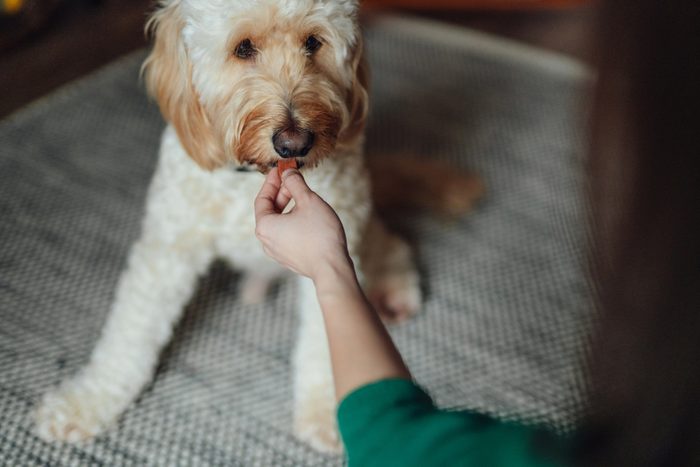
The number of Americans who are pet parents has skyrocketed in the last few decades, according to the American Pet Products Association. Their data suggest that 66% of American households today call a pet part of their family—and a Forbes Advisor survey found 78% of those pet owners welcomed new pets during the pandemic.
That means millions more visits to the vet each year, too, whether you’re taking your pup in for their annual check-up (or twice annually for older dogs, per vet recommendations) or seeking emergency care for your animal. “It’s a big job being a pet parent,” says Angela Silva, DVM, Regional Medical Director, East at Petco. “We are responsible for the whole health and wellness of our pets, including physical, mental, social, and home health.”
With veterinarians busier than ever, they clued us in about common missteps they see in pet care (which can lead to more frequent visits to their clinics), plus how to get the most out of your pet’s vet appointments.
Research Shows Owning This Type of Pet Could Extend Your Lifespan
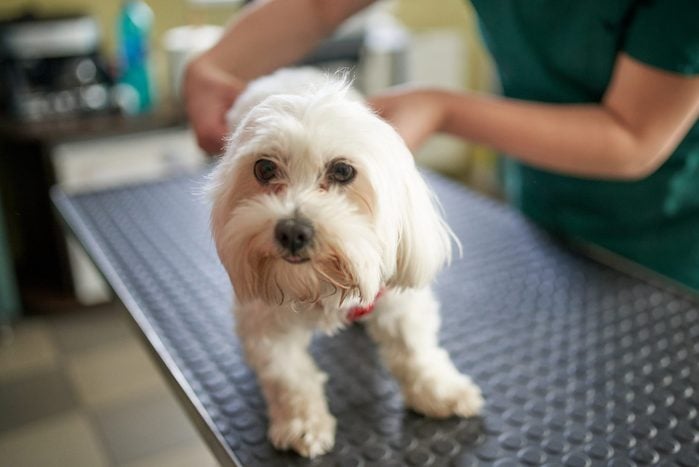
1. Skipping wellness visits
It’s critical that pet parents take their pets to the vet for annual wellness exams, Dr. Silva says. “Even if your pet seems healthy, routine vet visits allow for early detection and prevention and can help your pet live a longer and happier life.”
The 9 Best Dog Breeds That Help With Anxiety, According to Animal Experts
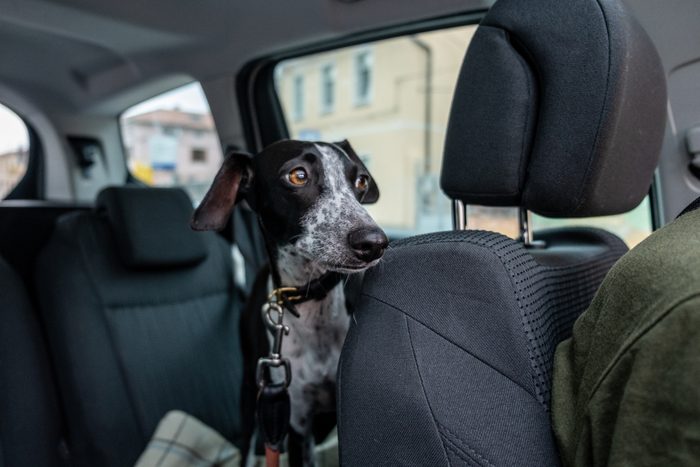
2. Ignoring pre-appointment instructions
Some appointments may require specific preparations, such as fasting before surgery or bringing a stool sample for a check-up, says Sara Ochoa, DVM, a veterinarian with The Animal Hospital of West Monroe in Louisiana. Neglecting these instructions can lead to delays or the need for rescheduling.
It’s also important to ensure your pet is clean and presentable, she says. “This makes it easier to examine them and also provides a better assessment of their overall health.” Also don’t forget a pet carrier or leash—pets can be unpredictable when they get nervous in an unfamiliar place like the doctor’s office. Restraining them can prevent them from getting loose or accidentally injuring themselves, others, or you.
Should Your Dog Be Sleeping in Your Bed? Here’s What the Experts Say
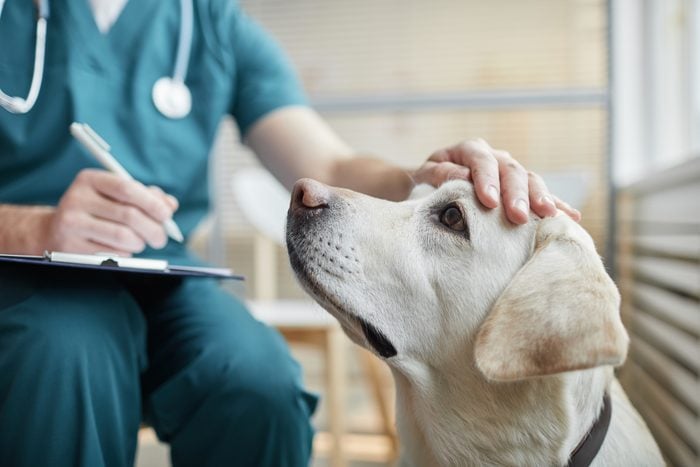
3. Not being prepared for the vet
The more detail you can provide your vet, the easier it is for them to identify any potential problems and ensure the appointment runs smoothly. It can help to keep a checklist of what the vet will need, says Alex Schechter, DVM, founding veterinarian at Burrwood Veterinary in Detroit. This can include copies of medical records (especially if it’s a first-time visit), your pet’s vaccinations list (which is very important and perhaps worth scanning into a file you can access on your computer), information about their diet, exercise, behavior, and any questions you want to ask.
Are There Hypoallergenic Cats? 7 Allergy-Friendly Cat Breeds
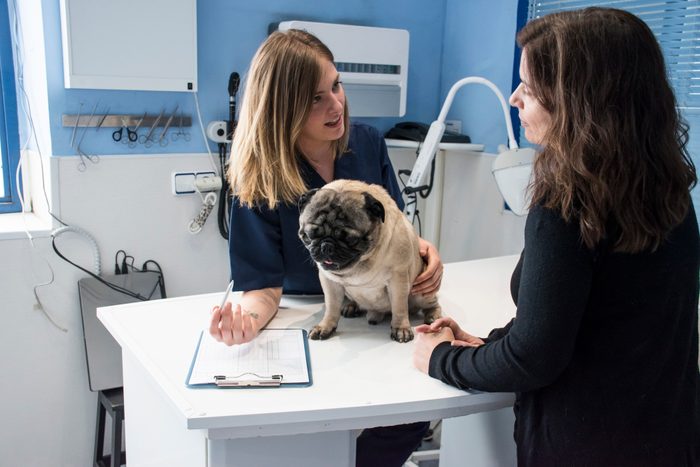
4. Withholding or forgetting details
Aside from basic health and lifestyle information, it’s essential to disclose any changes in your pet—and the more detail you provide, the easier it will be for your vet to understand potential problems. “Keep track of issues, like when they began and how they’ve progressed,” Dr. Silva says. This could include signs of discomfort or illness like itchy skin, ears, or paws, upset stomach, and changes in eating habits, energy levels, and weight.
In addition, if your pet is anxious or aggressive, let the vet know, Dr. Schechter says. “They can give you tips on managing your pet’s behavior during the appointment.”
Vets Share Their 5 Best Tips for Safer Dog Walks—and 5 Things Never to Do
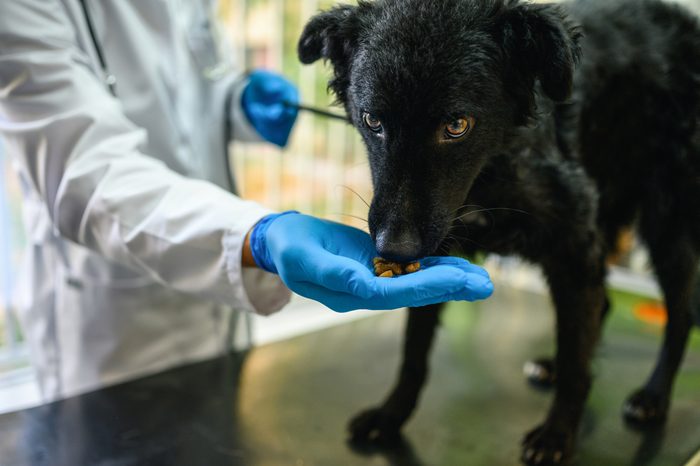
5. Forgetting treats or toys
Dr. Ochoa says that pets can get very anxious during vet appointments, so bringing their favorite blanket, toy, or treats can help them feel more comfortable during their visit. “It can also result in a less stressful visit when your pet may not feel well in the future,” adds Dr. Silva. “Positive reinforcement training and learning your pets’ body language and cues are great ways to increase communication between you and your pet during veterinary appointments.”
How to Massage Your Dog, According to Certified Dog Massage Therapists [With Instructional Video]

6. Not following up
If your pet had any testing done, check with your veterinarian on how and when you’ll be informed of the results, Dr. Silva says. Also follow up with any recommended treatments, such as follow-up exams or lab work. “These appointments may seem tedious, but they are necessary for catching any potential health issues before they become more serious,” Dr. Ochoa explains.
Otherwise, remember to schedule your pet’s next routine check-up before leaving. Vets are in high demand, and appointment slots fill up fast—trying to schedule a visit last minute can be tough and lead to gaps in your pet’s care.
Is It Safe for Your Dog to Run (or Bike) With You? Here’s the Farthest Experts Say You Should Go
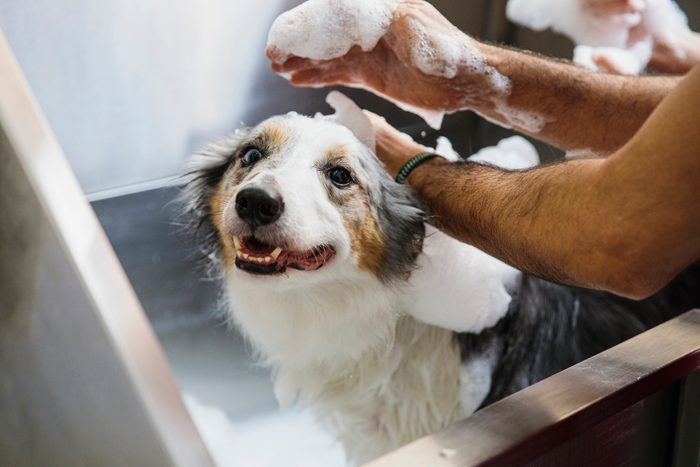
7. Overlooking grooming
Whether you do it at home or treat your pet to a professional groomer, keeping their coat tidy isn’t just aesthetic—it’s important for their health. Dr. Schecter explains that grooming helps keep your pet’s coat healthy and free of insects, can prevent skin problems, and for longer-haired furry friends, keeps painful mats and tangles at bay.
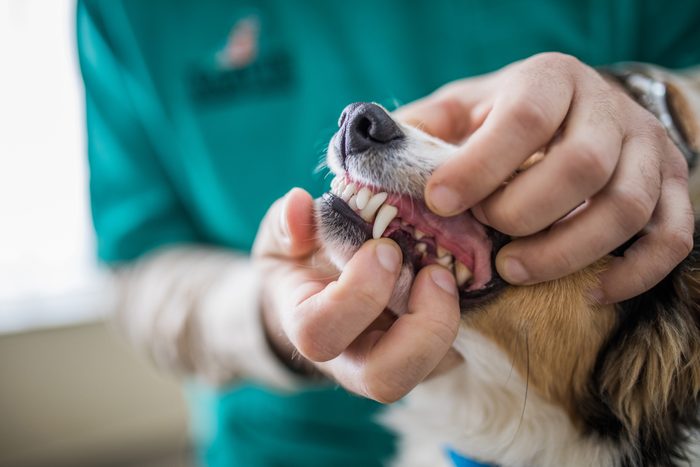
8. Skipping dental care
“One pet care habit I often notice pet parents may not be fully aware of is the importance of routine oral health and dental care for their pets,” Dr. Silva says. “Brushing teeth regularly helps prevent dental disease, which affects approximately 80% of adult dogs and cats.”
She says while daily brushing is ideal, you should aim to brush their pet’s teeth at least one to two times a week. “Supplements like dental treats, water additives, and dental wipes can be used in addition to brushing, but they do not replace it.”
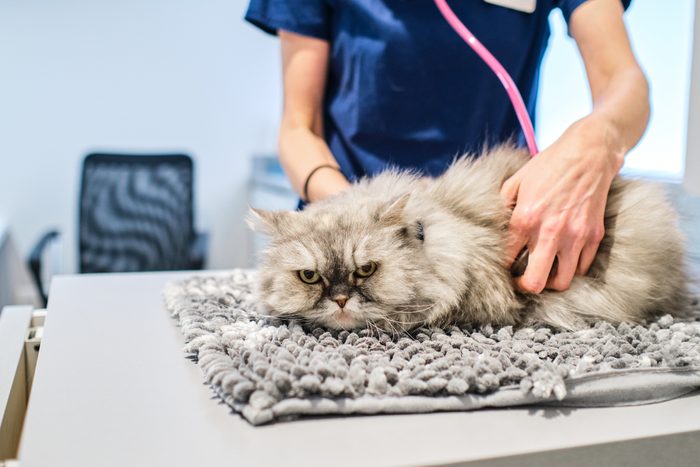
9. Missing preventative care
“Many vaccines and other preventative measures like flea and tick control require boosters and evaluations every year with your veterinarian to ensure protection,” Dr. Silva says. “Lapsing on a treatment can expose your pet, the pets they meet, and sometimes their human family members to harmful diseases like Parvo, leptospirosis, distemper, and hepatitis.”
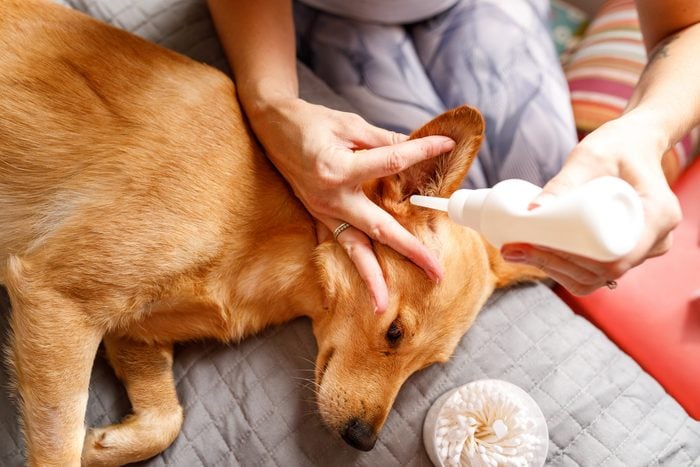
10. Being lax on post-care instructions
It’s so important to follow your vet’s recommendations for home pet care between appointments, Dr. Schecter says. “Give your pet any prescribed medication, adhere to dietary restrictions, and monitor their behavior for changes.” If they’ve had a procedure, keep an eye out for signs of pain, bleeding, or infection. And if your pet has a chronic condition, follow instructions for managing the situation to limit unnecessary follow-up visits. “It can be helpful to write down important information or instructions provided by the veterinarian during the appointment,” Dr. Ochoa says.
These Are the 3 Most Common Dog-Walking Injuries, New Johns Hopkins Study Says
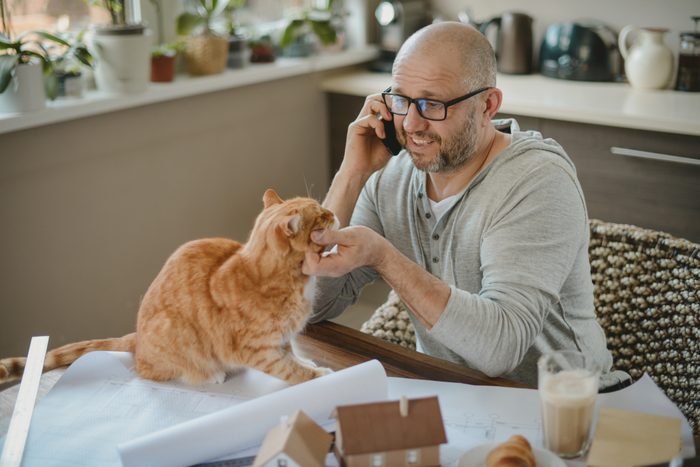
11. Not calling with questions
All the experts agree: If you aren’t sure about something, call the vet’s office and ask! Whether you have questions about your pet’s care or notice anything unusual or concerning, don’t hesitate to reach out. Also read A List of Foods Dogs Can’t Eat—and How to React If They Do, from Experts
Get The Healthy @Reader’s Digest newsletter and follow The Healthy on Facebook, Instagram, and Twitter. Keep reading:
